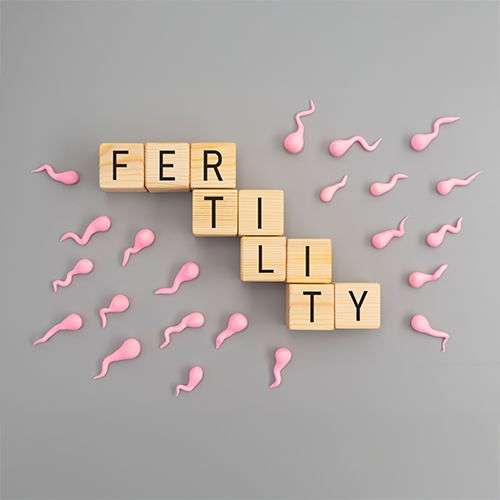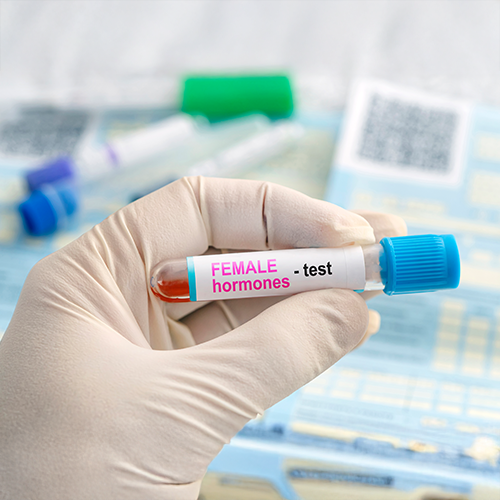Complete Guide to Hormone Testing for Female Infertility

Many women walk into our centre with a single question, “Doctor, why am I not able to conceive?” Umm, that’s a question filled with both emotions and science. Infertility is not only a medical condition but also an emotional journey. One of the most important pieces of this puzzle is hormones.
Yes, exactly. Hormones are the tiny messengers that regulate your menstrual cycle, ovulation, and fertility. When they fall out of balance, ahh, conceiving naturally becomes difficult. This is why hormone testing for female infertility is often the first step recommended by doctors. Let’s break this down step by step in simple language.
Table of Content:
- Why Hormone Testing Matters in Female Infertility
- The Key Hormones Tested for Female Infertility
- Additional Tests Sometimes Recommended
- What to Expect During Hormone Testing
- How Hormone Testing Helps Doctors
- The Emotional Side of Female Infertility
- Lifestyle Tips to Support Hormonal Balance
- Why Choose Sikund Diagnostic Centre for Female Infertility Testing
- Conclusion
Why Hormone Testing Matters in Female Infertility
Hmm, imagine your body as a perfectly tuned orchestra. Every instrument has to play at the right time for the music to sound beautiful. In fertility, the instruments are hormones such as LH, FSH, TSH, Prolactin, Estrogen, Progesterone, and Testosterone.
When even one of these is out of sync, ovulation may not happen, the uterine lining may not prepare correctly, or the eggs may not mature as they should. These hormone testing is to help you to identify:
- If you are ovulating regularly
- If the production of the eggs in your ovaries is proper or not
- If the thyroid or pituitary gland is creating any fertility issue
- If you are going through any underlying conditions like PCOS, ovarian failure, or thyroid imbalance
If you do not have these hormones tested it is not possible to find the root cause of infertility in women. It is just like searching for a small needle in the dark.
The Key Hormones Tested for Female Infertility
Here’s a closer look at the most important hormones.
1. Follicle Stimulating Hormone (FSH)
- Checked on Day 2 or 3 during your menstruation
- If the FSH is High, it suggests reduced ovarian reserve that is fewer eggs left
- And if the FSH is Low, it indicates that the brain is not signaling the ovaries properly for production of the eggs
Think of FSH as the hormone that helps the eggs to grow. Without it, ovulation won’t happen smoothly.
2. Luteinizing Hormone (LH)
- The LH unites with FSH to trigger ovulation
- If your LH levels are higher than the normal range then it means that you might have Polycystic Ovary Syndrome (PCOS)
- The LH:FSH ratio is a crucial diagnostic marker for PCOS
3. Prolactin
- High prolactin can block ovulation
- Women with elevated levels often have irregular cycles, no periods, or milky discharge from breasts
This is one of those “hidden hormones” that silently blocks fertility if left unchecked.
4. Thyroid Hormones (TSH, T3, T4)
- If thyroid gland is overactive or underactive it can affect fertility in both cases.
- Testing helps to identify whether the thyroid imbalance is interfering with ovulation or pregnancy
The imbalanced thyroid can be the real culprit for irregular menstruation, and many women discover this later in the life.
5. Estrogen (Estradiol E2)
- Estrogen helps to maintain the uterine lining in the uterus and helps in the egg maturation.
- If the Estrogen levels are low then it will effect the quality of the eggs and also the uterine lining will be thin.
6. Progesterone
- Progesterone is Tested on the 7th day after menstruation, that will be day 21 in a 28 day cycle.
- It is to confirm whether the ovulation actually happened or not
- If the progesterone levels are low then it will be difficult for the implantation
7. Testosterone and Androgens
- If the testosterone and androgen levels are high, it usually happens in PCOS
- High levels of testosterone and androgen usually causes acne, excess hair and irregular menstruation
- It also disturbs the normal egg release
Additional Tests Sometimes Recommended
- Anti-Mullerian Hormone (AMH): This test is to measure the ovarian reserve
- Insulin and Glucose: For PCOS-related insulin resistance in the body
- DHEAS & 17-OHP: To rule out adrenal causes of infertility
What to Expect During Hormone Testing
Okay, you might be having alot of questions about the tests, you might be thinking, “Do I need to fast? Is it painful?”
Here’s the reality:
- It’s a simple blood test, nothing complicated
- Some tests are cycle-specific (FSH and LH on Day 2/3, Progesterone on Day 21)
- Fasting is usually not required unless sugar or insulin tests are also ordered
- Reports are typically ready within 24–48 hours
So, uh, nothing to worry about.

How Hormone Testing Helps Doctors
Once results are available, doctors can:
- The test results can help to confirm whether you are ovulating or not
- The results helps in diagnosis of PCOS, thyroid issues, or ovarian reserve problems
- Decide if you need medications like ovulation-inducing drugs or not
- They can recommend you the treatment accordingly like whether you need lifestyle changes, supplements, or assisted treatments such as IVF
Instead of playing a guessing game, hormone tests provide a clear scientific path for the diagnosis and also for treatment.
The Emotional Side of Female Infertility
Aah, infertility is never just about lab reports. It is about hope, stress, anxiety, and endless questions. Many women feel guilt or social pressure. Here’s the truth: you are not alone.
We are standing firmly with you, here we believe in listening not just in testing. Our team will explain your results clearly and supports you emotionally because, yes, words do matter to us and we know infertility is treatable in most cases once the real cause is identified.
Lifestyle Tips to Support Hormonal Balance

Lifestyle changes help a lot. While treatment is essential, a few lifestyle practices can improve the hormonal health-
- Maintain a healthy weight (both underweight and overweight disrupt hormones)
- Eat a balanced diet rich in proteins, whole grains, fruits, and vegetables
- Exercise moderately (yoga and walking are excellent choices)
- Sleep at least 7–8 hours daily
- Reduce stress with meditation, hobbies, or counseling
Why Choose Sikund Diagnostic Centre for Female Infertility Testing
- Here at sikund we have advanced laboratory equipments that ensures accurate results
- We have experienced team specializes in reproductive and hormonal testing
- Quick reporting with most results available in 24–48 hours
- Here at Sikund we believe in patient-friendly approach with clear explanations
- Privacy and compassion maintained throughout the testing
Conclusion
If you’ve been trying to conceive for more than a year without success, don’t delay further. Hormone testing for female infertility is simple, non-invasive, and extremely helpful in understanding your body’s needs.
Infertility is not the end of the journey. With the right tests and guidance, most women go on to experience the joy of motherhood. Take that first step today. Answers and solutions are often just one test away.



